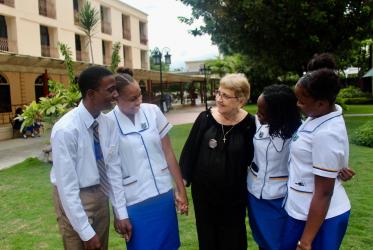Displaying 1 - 6 of 6
11 October 2018
Linette Vassel: “We need to examine power more deeply as women”
03 October 2018
Determined to make a difference
18 April 2018
"We have our work cut out for us"
10 August 2017



